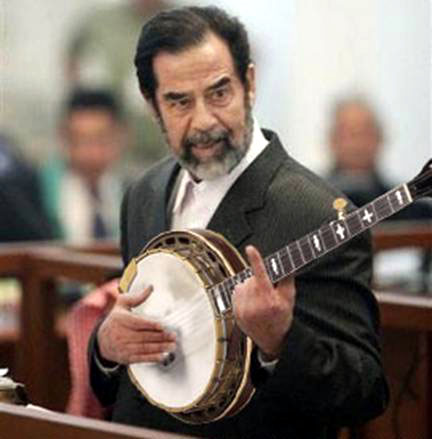Monday, April 4, 2011
Review: Lupe Fiasco - Lasers
Lasers, the third outing by backpack rap sensation Lupe Fiasco, is an album that almost wasn't. Fans have been waiting for a follow up to the concept album The Cool since it came out in 2007. Initially, Lupe Fiasco announced that his third (and supposedly final) album would be a three disc release called LupE.N.D. which has since been delayed indefinitely. From there, the album went through several name changes, from the Great American Rap Album, to We Are Lasers, to simply Lasers (in case it isn't readily apparent from these titles, Lupe has never been one for being understated, his concept for the Cool is only further evidence of this,) But the roller coaster ride was far from over. Despite the fact that it had a release date of late 2009 and several singles had been released (some of which never actually did make it onto the album) Lasers didn't actually get released until last month. According to Lupe himself, the album had actually been complete for some time, but was being held up by Atlantic Records. But after several years of waiting, and an online petition to Atlantic to release the record that quickly received 30,000 signatures, Lasers finally hit the shelves. Unfortunately, the head scratching didn't stop there.
For all the anticipation and hype leading up to its release, the actual album turned out to be every bit as confusing and difficult to pin down. Critical response seems to be a resounding "meh," and I can't say I disagree very much. There has been a considerable degree of rumbling in critical circles about the increasing pop sentiment on this album. The Allmusic reviewer, for example, complained of the album's "lumbering, overwrought choruses." While there certainly are some disappointments here that likely arise from the concessions Lupe had to make to finally get this album released, I for one think that to call the hooks and choruses in Lasers a departure is largely ignorant of what Lupe has always done in his music. Lupe's shtick has always been superb rhymes interspersed with hooks painted in broad strokes. Just look at the two most well-known tracks off his debut, "Daydreamin'" and "Kick, Push." Neither of these is devoid of pop overtones. The Jill Scott chorus from "Daydreamin'" is positively infectious, and the strings sampled from Celeste Legaspi's "Bolero Medley" on "Kick, Push" give the song a syrupy grandeur for which any pop composer should be envious.
While the poppier side of Lasers shouldn't be seen as a complete betrayal, there is no denying that the album has its share of disappointments. To my ears, there are two important things missing from this album. The first is trajectory. While the album starts with some strong tracks, particularly the musical indictment of Obama "Words I Never Said," what follows is a sharp decline in quality. The first signs of trouble come on the song "the Show Goes On," which strangles the life out of a sample of Modest Mouse's "Float On." That Lupe would look to the indie rock darlings for inspiration is interesting, but the execution leaves a lot to be desired. Easily the best track on the album, "All Black Everything," comes as the penultimate track on the album. The song imagines a comically absurd alternate reality in which racism doesn't exist. In this world, things are completely turned on their head, Bill O'Reilly eulogizes Malcom X (who dies as an old man) by reading from the Qur'an. Lines like "Somalia is a great place to relax in/ Fred Astaire was the first to do a backspin/ The Rat Pack was cool group of black men" illustrate the kind of lyrical brilliance Lupe is capable of. Any sense of trajectory gained here, however, is completely lost on the album ending "Never Forget You" which features John Legend who completely overshadows Lupe in the worst way possible.
But perhaps even more conspicuously absent from this album is any sense of the quirky nerd-friendly side of Lupe that made him a critical success in the first place. Gone are the geeky rhymes about robots, skateboarding and Japanese culture from Food & Liquor or the grand (if silly) prog-rap sensibility of the Cool. What we are left with is a relatively ordinary hip-hop album from an artist whose appeal is based largely on his ability to be anything but ordinary.
The few bright moments on Lasers make it worth at least a listen, but to see Lupe Fiasco in his more consistent, less adulterated form, first-time listeners should stick to his first two albums.
Subscribe to:
Post Comments (Atom)





No comments:
Post a Comment